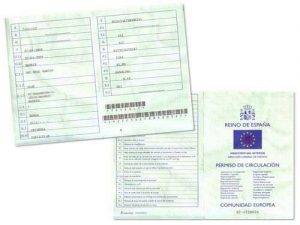Register a Foreign Vehicle in Spain: Stay Clear Of Usual Blunders and Hold-ups
Register a Foreign Vehicle in Spain: Stay Clear Of Usual Blunders and Hold-ups
Blog Article
Usual Challenges Faced Throughout Foreign Vehicle Registrations and How to Overcome Them
Browsing the complexities of international vehicle registrations can be a challenging job, fraught with obstacles that vary dramatically throughout jurisdictions. Issues such as figuring out regional regulations, getting rid of language barriers in crucial documents, and fixing up discrepancies in automobile specs typically occur. Understanding tax implications and conformity with security standards can even more complicate the procedure. By taking a look at reliable strategies to deal with these barriers, individuals can much better place themselves for a smoother enrollment experience. The question remains: what specific actions can be required to mitigate these usual pitfalls?

Recognizing Neighborhood Laws
Browsing the intricacies of foreign car registration starts with a complete understanding of local policies. Each nation has its specific regulations and requirements regulating the enrollment of vehicles, which can differ dramatically from one territory to another (Register a foreign Vehicle in Spain). It is essential for foreign automobile owners to acquaint themselves with these policies to guarantee conformity and stay clear of possible fines or lawful issues

Additionally, some territories mandate lorry inspections to determine compliance with regional safety and security and discharges criteria. This may necessitate modifications to the vehicle before it can be lawfully registered. Involving with regional authorities or consulting with lawful experts can provide quality on these guidelines.
Language Obstacles in Documents
Language obstacles pose significant challenges when it comes to the documents needed for foreign automobile registration. Several individuals encounter problems in understanding the particular requirements detailed in neighborhood guidelines, as these papers are usually published in the official language of the host nation. Misinterpretations can lead to the entry of wrong or incomplete paperwork, causing delays or denial of registration.
Moreover, crucial documents, such as title acts, proof of ownership, and insurance plans, might not have conveniently offered translations - Register a foreign Vehicle in Spain. This can develop complication for foreign car owners that are not familiar with the regional terms and legal jargon. Therefore, navigating the registration process comes to be troublesome, frequently requiring added effort and time to guarantee conformity
To reduce these concerns, it is recommended for foreign lorry owners to seek expert translation services or seek advice from regional experts that can aid in recognizing the requisite paperwork. In addition, government companies might supply multilingual sources or standards to facilitate the registration procedure. Proactively resolving language barriers can improve the registration experience, making sure click to find out more that all needed records are precisely ready and submitted based on regional regulations.
Lorry Specification Inconsistencies

Running into lorry specification inconsistencies can produce significant obstacles for international car proprietors during the enrollment procedure. These discrepancies usually occur from distinctions in making standards, dimension devices, and regulatory demands in between the vehicle's native land and the host country. A car that satisfies safety and security and exhausts standards in one country may not line up with the specs needed for enrollment in an additional, leading to hold-ups or straight-out rejections.
To overcome these challenges, it is important for foreign lorry owners to conduct comprehensive research study prior to starting the registration process. This includes comprehending the particular demands set by the regional authorities, such as this page security requirements, emissions levels, and any necessary modifications. Involving with a specialist solution concentrating on international car registration can also provide valuable understandings and help in browsing these disparities.
Paperwork plays a key duty, so making certain that all technological requirements and adjustments are properly mirrored in the documentation can minimize problems. Furthermore, maintaining open interaction with regional try this out enrollment authorities can provide clarity on any prospective discrepancies, permitting prompt resolution and successful enrollment of the lorry.
Browsing Tax Requirements
Comprehending the tax needs connected with foreign vehicle registration is essential for owners aiming to abide by regional policies. Each jurisdiction has details tax obligation responsibilities that need to be satisfied prior to a vehicle can be legally registered. These might consist of import obligations, value-added tax obligations (BARREL), and annual car taxes, which can vary significantly relying on the automobile's origin, worth, and specs.
To navigate these tax obligation demands effectively, lorry proprietors must start by looking into the details tax obligations appropriate in their area. Consulting with neighborhood tax authorities or a tax obligation expert with experience in international lorry enrollments can give clearness on the process and possible responsibilities.
Furthermore, it is important to maintain complete documentation of the vehicle's purchase and any repayments made, as this will certainly be needed for tax obligation computations and possible audits. Owners must additionally know any type of target dates connected with tax obligation payments to prevent fines or hold-ups in enrollment.
Evaluation and Conformity Issues
Consistently dealing with assessment and conformity issues is important for proprietors of international vehicles seeking to register them in a new territory. Each region has unique policies relating to car safety, discharges, and alterations, which can position substantial obstacles for owners not familiar with neighborhood standards. Comprehending these needs is critical to avoid hold-ups and added expenses.
One typical problem arises when international automobiles do not satisfy the host jurisdiction's safety and security and exhausts requirements. Owners must proactively validate that their cars conform with regional laws, which might entail adjustments or acquiring necessary documentation from suppliers. Furthermore, many territories call for a thorough assessment by a licensed center, which can cause further difficulties if the lorry fails to satisfy specific requirements.
To browse these difficulties, proprietors can get in touch with local automobile enrollment authorities or look for assistance from experts knowledgeable about the enrollment procedure. Preparing all required documents in advance, consisting of previous assessment records and proof of compliance, can simplify the enrollment process. Eventually, thorough preparation and understanding of evaluation demands can dramatically boost the possibility of a successful foreign automobile registration.
Final Thought
In summary, the process of international automobile enrollment involves numerous challenges, consisting of comprehension of local laws, language obstacles in paperwork, discrepancies in automobile specs, navigating of tax obligation demands, and examination and conformity concerns. Attending to these challenges requires thorough research study, usage of professional translation solutions, and examination with regional authorities. Engaging specialized solutions can guarantee adherence to safety and security and discharges requirements, inevitably promoting a smoother enrollment procedure and compliance with all relevant responsibilities.
Report this page